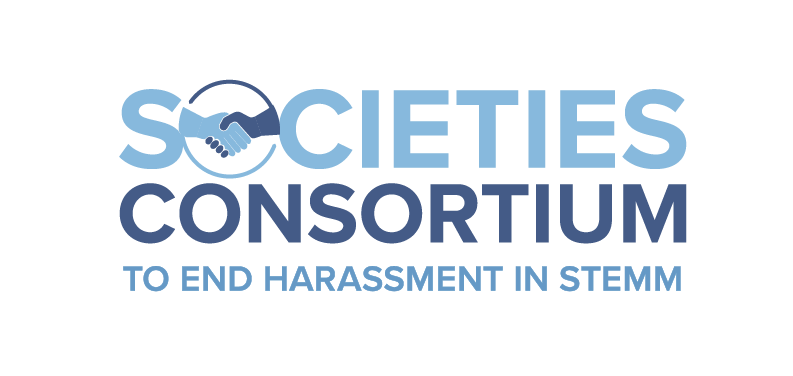The White House Highlights the Societies Consortium on Sexual Harassment in STEMM for Action to Advance STEMM Gender and Racial Equity
On December 12, the White House announced its new initiative to advance equity and inclusion in STEMM education, research, and workplaces—the STEMM Opportunity Alliance (SOA)—being pursued with American Association for the Advancement of Science (AAAS) and the Doris Duke Charitable Foundation. The WH SOA Fact Sheet cites the Societies Consortium on Sexual Harassment in STEMM as one of only three non-federal organizations highlighted for taking bold action to eliminate systemic bias, inaccessibility, discrimination, and harassment across the STEMM ecosystem. In addition to generally citing model policy and action resources for Consortium members, the White House highlights the Consortium’s ecosystem-wide Case Studies Library and Ethical Transparency Tool. For more information, see the fact sheet here. (STEMM Opportunity Alliance—for the Consortium, scroll to Action to eliminate systemic bias, inaccessibility, discrimination, and harassment).
Officially launched in January 2019, the Societies Consortium on Sexual Harassment in STEMM (including medicine) is a unique and sustained leadership community of well over 100 STEMM societies in a wide range of fields that are committed to a mission of advancing professional, ethical, inclusive, and equitable conduct, climate, and culture for excellence in the fields. The Consortium’s particular focus is on women, members of the LGBTQ+ community, and those who have racial and other intersecting identities targeted for bias. Driving our work is the belief that ecosystem-wide climates and cultures where all talent is welcome and can thrive, and which are actively intolerant of harassment, are essential for excellence, innovation, and integrity in STEMM.
As a comprehensive and strategic excellence initiative, the Consortium prioritizes action that has research-backed, operational impact. Societies can be critical levers of change across the STEMM ecosystem because the faculty, researchers, practitioners, students, and trainees, whose conduct in multiple settings creates the fields’ climate and culture, care deeply about being recognized by their societies. Societies can influence ecosystem-wide climate and culture change by defining excellence as high-quality work inextricability intertwined with high standards of conduct in doing the work. They can both model and contribute to needed climate and culture change by integrating equity, diversity, and inclusion values in all aspects of their policies, practices, norms and activities, including, e.g., in the governance, leadership, meetings, networking and mentoring opportunities they offer to members; in the honors they confer (and revoke); and in their journals’ peer review and publication policy design and practices. Societies are core drivers of success in careers. That influence provides a unique opportunity for the Societies Consortium, whose members span a broad range of STEMM fields, to make a difference in the climate and culture of the STEMM education, research, and practice ecosystem.
AAAS, the Association of American Medical Colleges (AAMC), and the American Geophysical Union (AGU) (which are standing Consortium Sponsoring Members), and EducationCounsel, co-originated the Consortium. The Executive Committee includes senior representatives of the American Educational Research Association (AERA) and AGU (Co-Chairs); AAAS and the Institute of Electrical and Electronic Engineers (IEEE) (Co-Vice Chairs); and the AAMC, American Chemical Society (ACS), American Psychological Association (APA), American Physical Society (APS), Entomological Society of America (ESA), and Federation of American Societies for Experimental Biology (FASEB). With all members, a Leadership Council of 10 member societies focused on quality and value of resources and Advisory Working Groups of research universities, higher education associations, and societies focused on the Case Studies Library and Ethical Transparency Tool, are invaluable contributors. For more information, see the overview of the Consortium here.
Congratulations to the American Institute of Physics (AIP), a member of the Consortium Leadership Council, for also being recognized in the WH’s announcement in other categories.
